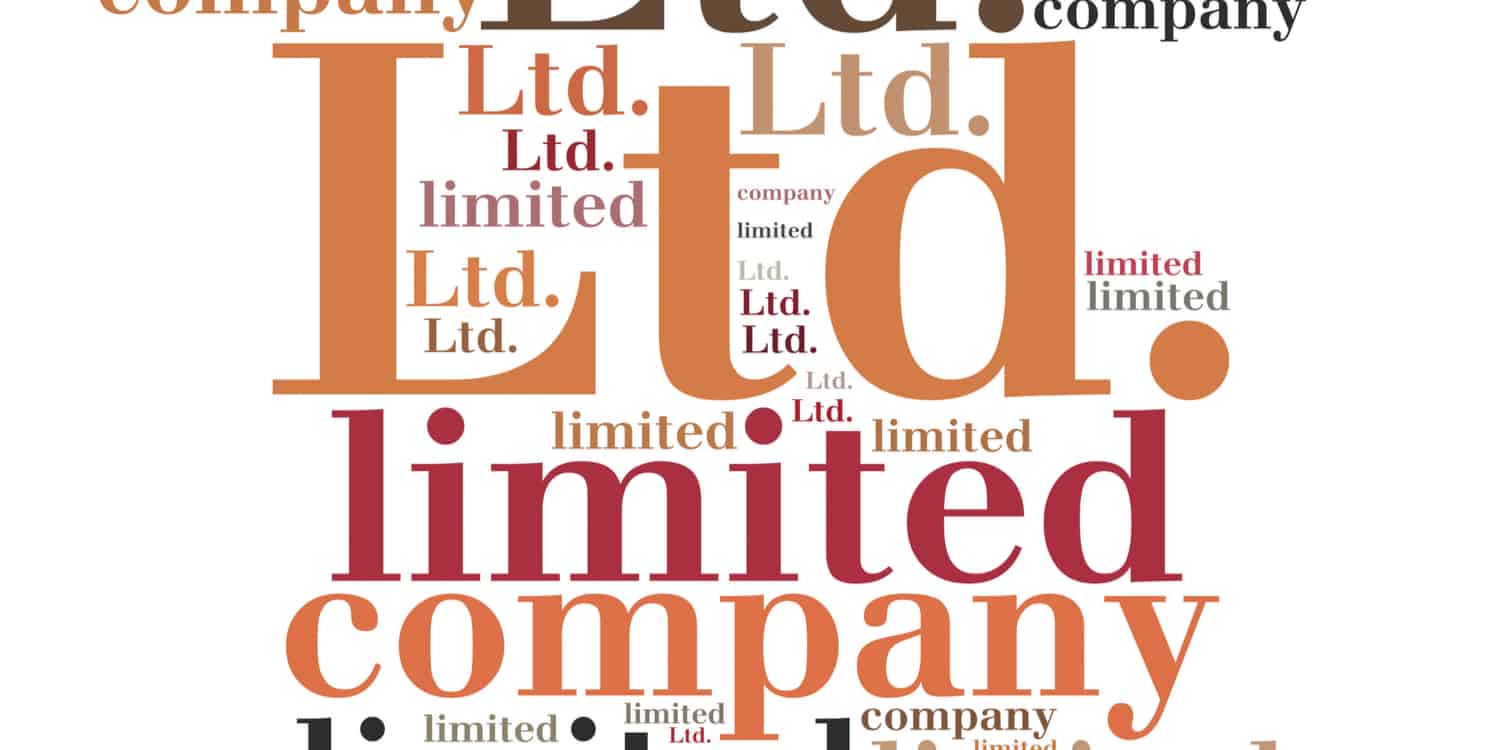There are several different company structures available to businesses in the UK, each of which offers a variety of benefits. Whether you’re a startup, a non-profit, or an established sole trader, choosing the right company structure for your business is an important consideration that can impact your profit margins, competitive advantage, and future growth.
Key takeaways
- Choose a private company limited by shares for tax benefits and reduced personal liability compared to sole trader structures.
- A private company limited by guarantee is ideal for non-profits, ensuring limited liability and tax efficiency.
- Public limited companies (PLCs) can quickly raise capital by selling shares, but require stringent regulatory compliance.
Whilst there are many other company structures available in the UK, the four primary ones are:
- Private company limited by shares
- Private company limited by guarantee
- Limited liability partnership (LLP)
- Public limited company (PLC)
Setting up a sole trader business is another option in the UK, but this business structure only allows for one owner, and it does not offer the same benefits as a company.
Private company limited by shares
The most popular company structure in the UK, a private company limited by shares, is a type of business structure that is set up for the purpose of making a profit for the benefit of its owner(s). It is incorporated at Companies House as a legally distinct entity, which means that it is separate from its owner(s), has its own legal rights, and is responsible for its own affairs, finances, and liabilities.
Shareholders and directors
This type of company is privately owned by one or more shareholders and managed by one or more directors. Each shareholder agrees to take at least one share in the company. These shareholdings reflect each shareholder’s percentage of ownership, control, and profit entitlement, as well as the extent of their personal liability should the company ever be unable to pay its debts. Shareholders and directors can be the same people, so you can set up a private company limited by shares on your own or with other people.
Tax savings
A private company limited by shares is suitable for profit-making businesses of all sizes, ranging from small startups to large organisations. It provides a more favourable tax regime than the sole trader structure, so you can lower your personal tax liability and retain more of the profits. This is because the company pays only 19% Corporation Tax on all taxable income, directors are paid a salary through PAYE, and shareholders receive dividend payments from the remaining profit.
A limited by shares company structure is also best if you intend to build up cash in the business by retaining profits. Once the company has paid Corporation Tax (and VAT, if applicable) on its taxable trading income, it will not be subject to any further tax unless paid out as a salary or dividends. This is not the case with the sole trader or LLP structures.
Limited liability protection
In addition to the tax-saving benefits, this type of company structure offers reduced financial risk to shareholders because, as a distinct legal entity, the business itself is responsible for its own liabilities. In the event of insolvency or being sued, the financial liability of company shareholders is limited to the money they have paid, or agreed to pay, for their company shares, which is often just £1.
Competitive advantage
The added status of running your business as a limited by shares company will also give you a greater competitive advantage than operating as a sole trader. Due to the requirement to disclose corporate information on the public register at Companies House, a limited company structure will lend professional credibility to you and your business, help to build trust and improve your reputation, and provide access to clients who work exclusively with incorporated businesses.
Private company limited by guarantee
A private company limited by guarantee is a legal business structure widely used by non-profit businesses like charity organisations, community projects, social enterprises, societies, and clubs. Similar to the limited by shares structure, a company limited by guarantee is incorporated at Companies House as a distinct legal entity.
No shares or shareholders
This type of company structure does not have shares or shareholders. It has one or more members, known as ‘guarantors’, and one or more directors. Guarantors and directors can be the same people or different people. The personal liability of guarantors is limited to the sum of the guarantee that each agrees to pay, which is typically just £1.
No profit distribution
Any profit generated by a limited by guarantee company is normally used to further the non-profit purposes of the business, rather than being distributed to the company members.
What are the benefits?
The benefits of setting up a company limited by guarantee for a non-profit business include tax efficiency, limited liability protection for members, and greater credibility – all of which are essential when running a transparent non-profit or charitable organisation. This type of company structure is also a legal requirement for many registered charities.
Limited liability partnership (LLP)
A limited liability partnership is a hybrid of a limited company and a traditional partnership, providing limited liability protection to partners whilst retaining the tax regime, profit distribution options, and flexible internal structure of an ordinary partnership.
Ideal company structure for professional service providers
An LLP is favoured by a range of professionals such as accountants, solicitors, surveyors, architects, general practitioners, dentists, veterinarians, business consultants, and other professional service providers who would normally operate as a partnership.
LLP members
Incorporated at Companies House as a separate legal entity, an LLP has two or more partners, known as ‘LLP members’. There are no shareholders, guarantors, or directors. Instead, LLP members are collectively responsible for managing the business and they are each entitled to a share of the profits.
LLP Tax
LLP members must register with HMRC as self-employed and file their own Self Assessment tax returns every year. Each LLP member receives a share of the partnership’s profits based on their individual contribution. This is treated as personal income, so each member pays Income Tax and National Insurance Contributions on the profit received from the LLP.
Whilst an LLP does not provide the same tax-saving and profit-retention advantages as a company limited by shares, it does offer more flexible profit allocation and internal management options, which are of greater benefit to the types of professions who prefer to operate as a partnership.
Public limited company (PLC)
Similar to a private company limited by shares, a public limited company (PLC) is incorporated at Companies House as a legally distinct entity that is responsible for its own assets, profits, and liabilities. However, a PLC can sell its shares to the general public and trade on the stock markets, which is something that a private limited company is not permitted to do.
The biggest advantage of setting up a PLC is the ability to raise capital investment relatively quickly by selling shares to the general public. By going public and then also listing shares on a recognised stock exchange (such as the London Stock Exchange’s AIM), you can also generate a great deal of publicity, which helps to increase brand awareness, attract new customers, and grow your business.
PLCs are subject to far more stringent rules and regulations than private companies. You need at least two directors, a qualified company secretary, and a minimum share capital of £50,000. As such, it is really only suitable for established companies with an advanced infrastructure. This is certainly not the company structure you would choose as a startup or small business.
How to set up a limited company
All types of limited companies in the UK are incorporated at Companies House, including private companies limited by shares or guarantee, LLPs, and PLCs. It’s a relatively quick process that can be completed online in a matter of minutes, with most companies registered and ready-to-trade on the same day.
The easiest and cheapest way to set up a company is to use the services of an online company formation agent. At Quality Company Formations, we have a range of company registration packages for all types of companies, with prices starting at just £51.99 (+VAT). We also provide company addresses, a free business bank account, and a whole host of additional professional services that will make it easier to manage your new company successfully.
To set up a company or limited liability partnership online, you will be asked to choose a company name, provide a few details about your business and the people who control it, pay for your company formation package, and let us take care of the rest. In most cases, Companies House approves applications within 24 hours.
Once approved you’ll be able to enjoy the benefits, including those discussed in this article and more, that come with your registered entity.














Join The Discussion
Comments (2)
Jon Morgan, CEO of Venture Smarter. This is a useful article on how to choose the right company structure for your business. I have a lot of expertise and experience in helping businesses find the best legal and operational solutions for their needs. I know that choosing the right company structure is a crucial decision that can affect your tax, liability, ownership, and management. I agree with the article that there are four main types of company structures in the UK: sole trader, partnership, limited company, and limited liability partnership. Thank you for this informative article.
Best,
Jon Morgan
Thank you for your kind words, Jon.
Kind regards,
The QCF Team